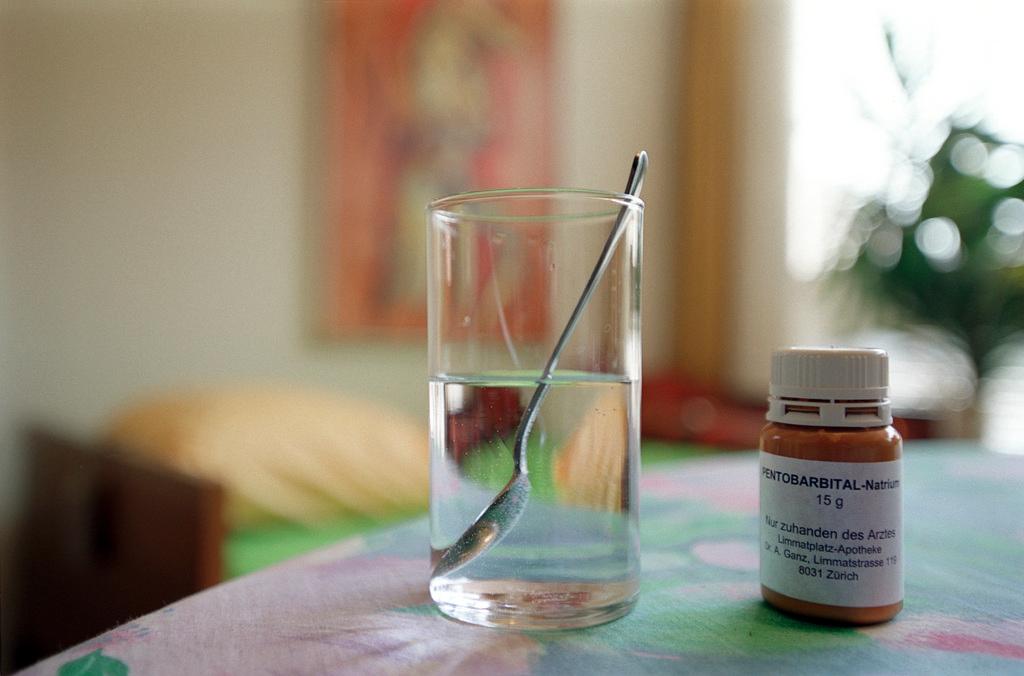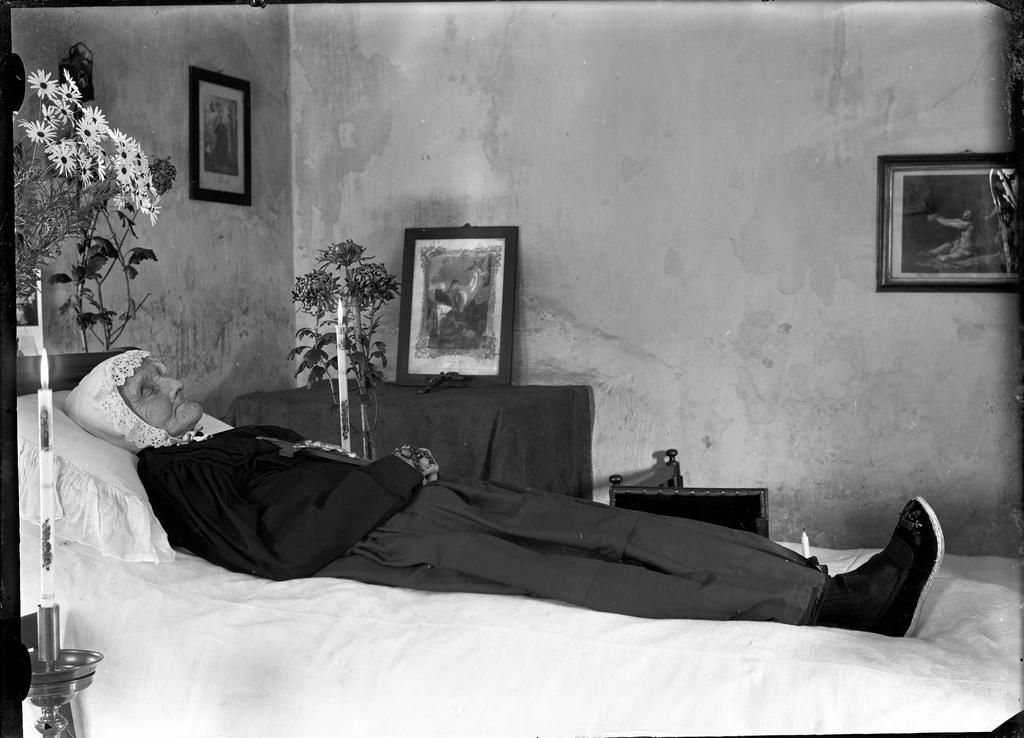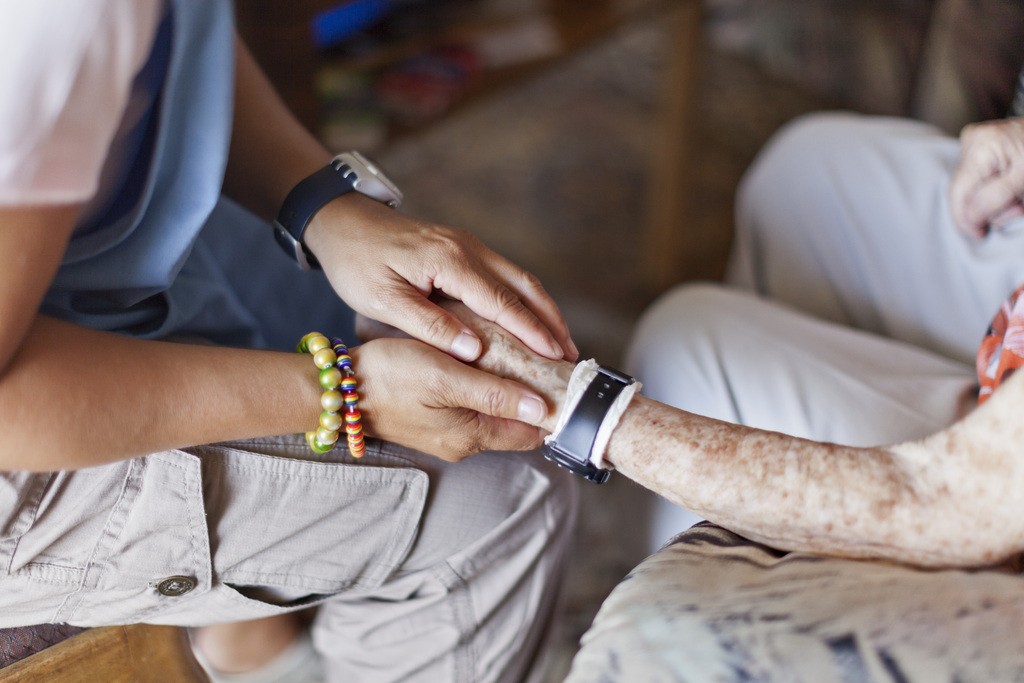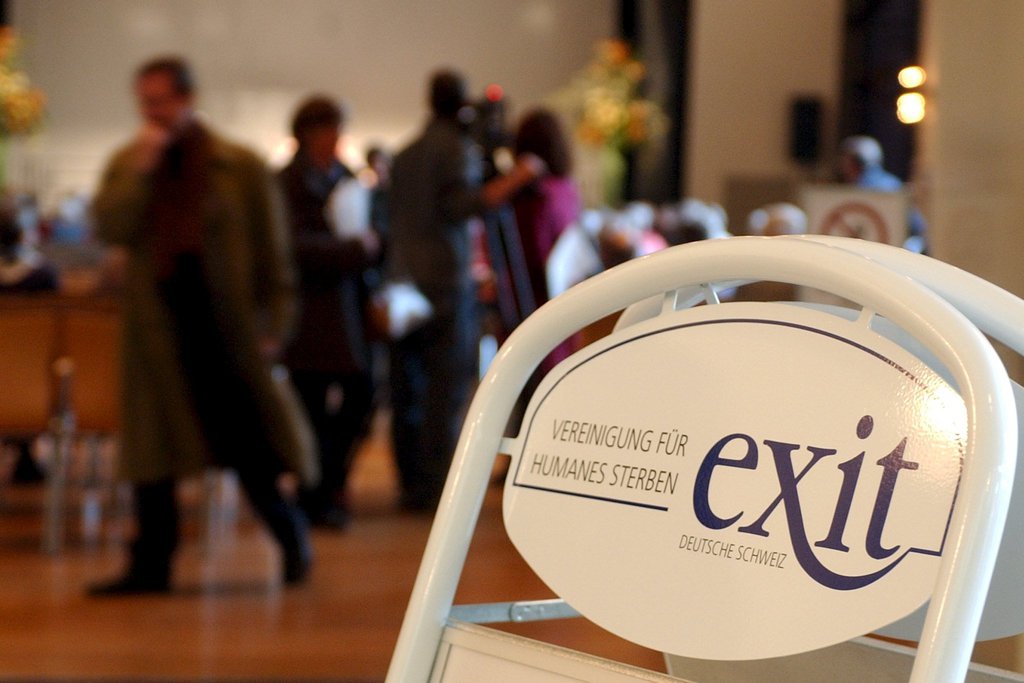Most doctors back assisted suicide – but few would do it

Three-quarters of Swiss doctors think assisted suicide is acceptable in principle, but fewer than half are personally prepared to carry it out, according to a study by the Swiss Academy of Medical Sciences (SAMS). External link
“The results show the ambivalence of doctors concerning this issue,” said Michelle Salathé, SAMS deputy general-secretary.
For the majority of the 1,318 respondents, support for assisted suicide depended on the specific situation: the more clearly a purely physical and terminal disease is present, the greater the acceptance of physician-assisted suicide. Thus, three-quarters were opposed to assisted suicide in the case of people who are old but otherwise healthy, while over half rejected assisted suicide for patients with mental illness.
The study, published on Wednesday, also investigated physicians’ personal experiences in this area: somewhat less than half of the respondents had, on at least one occasion, received a serious request for assisted suicide.
About a quarter had, at least once, evaluated whether the eligibility criteria for assisted suicide were met. Most of the physicians concerned have done so very rarely, while individual respondents have undertaken such an evaluation at least 50 times.
Long-standing debate
Of the respondents, 111 reported having performed at least once an act which legally constitutes assisted suicide. In general, they had prescribed a lethal dose of phenobarbitone sodium. In around three-quarters of the cases reported by the respondents, an assisted suicide organisation was involved.
Dignitas, the largest association offering assisted suicide to non-residents, registered 198 cases of assisted suicide in Switzerland in 2012. Exit, another assisted suicide group, said cases from abroad had remained more or less stable for the past ten years at about 225 cases a year.
In addition, there were 508 cases involving Swiss residents in 2012, up 18% from the previous year, most of them with Exit, which has been offering its services only to Swiss citizens or permanent residents for more than 30 years.
In its response to the results of the SAMS study, Exit welcomed the fact the the attitude of the medical profession is in line with the feelings of the Swiss population on the issue. It also pointed out that unlike Exit, doctors are pressed for time and lack training in palliative care, which could explain their reluctance to carry out assisted suicides.
The SAMS study involved a random sample of 4,800 Swiss physicians. However, given the response rate (27%), the results cannot be generalised to the medical profession as a whole; rather, they may reflect the views of physicians with a particular interest in this issue.
The study was commissioned in the light of the long-standing debate in Switzerland concerning assisted suicide and physicians’ role in this area.

In compliance with the JTI standards
More: SWI swissinfo.ch certified by the Journalism Trust Initiative




You can find an overview of ongoing debates with our journalists here. Please join us!
If you want to start a conversation about a topic raised in this article or want to report factual errors, email us at english@swissinfo.ch.